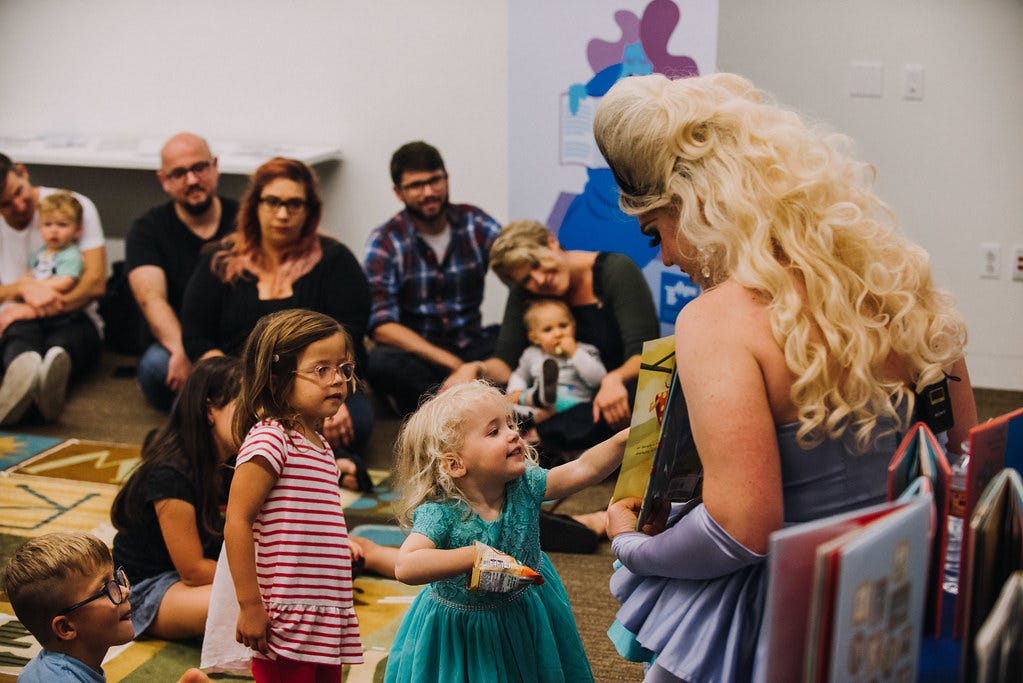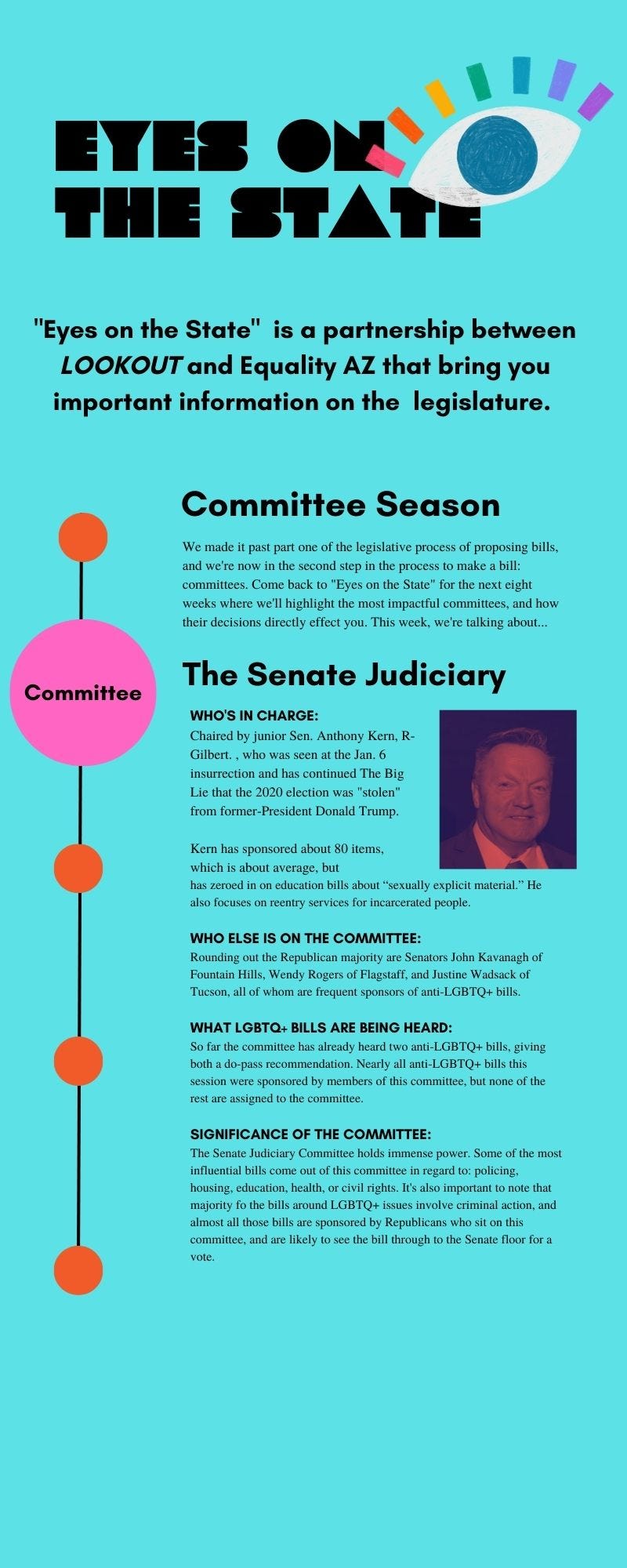Masked as a bill to protect children, Republicans continue to push bills eliminating LGBTQ+ visibility
In an effort to silence critics of a bill that bans drag in public spaces, Senators said that only shows that were sexual would be art risk. But then came comments from proponents.
Our news is free to everyone, but subscribers get 24-hour early access to all the stories, and special sections in today’s newsletter. We rely on subscriptions to keep our news free. If you can, consider a subscription.

In what turned out to be a heated debate between the Senate Judiciary Committee’s two most hard-line conservatives and members of the queer community, State Bill 1026, which would ban drag in most places if the performance is considered “prurient,” passed with a majority of votes.
The bill, put forward by Sen. Anthony Kern (R-Gilbert), is a mirror image of bills in other states that have been proposed by far-right conservative groups and championed by religious evangelicals.
As written, the bill would expand on the state’s current cabaret laws, which already prohibits nudity or pornography where minors are present, to include sexualized drag performances. And while that wording may seem reasonable to the public, the bill has been drafted to give the power of determining profanity to everyday people, not authorities.
In testimony, Sen. John Kavanagh, a fervent conservative from Fountain Hills who has made a career of proposing some of the state’s most far-right legislation in the past, reiterated multiple times that the bill only targets drag shows where “nipples are flying everywhere,” and wouldn’t include people simply performing.
“That would be ridiculous,” said the sponsor of the bill, Sen. Kern, who said that he is a fan of drag, such as the movies “Tootsie” and “Ms. Doubtfire.” But later in the hearing, Kern said that men dressing in drag with “boob implants” in front of children were sexual predators.
Sen. Justine Wadsack (R-Tucson), who also sits on the committee, said that she would hope the bill passes to protect children from drag queens during popular library “story-hour” events. No one on the committee provided an example of when a local drag queen assaulted or sexually harassed a child.
Kavanagh explained there is “established case law” to decide what is considered obscene, but that definition is not so clear-cut, and has resulted in wonky legislation and a court litmus test that prosecutors have to use when deciding to bring charges in cases involving pornography.
The Supreme Court in 1973 established that three-pronged test in Miller v. California to help define what obscenity could be. But at the end of the day, most of the decisions around obscenity come down to a famous quote made by Supreme Court Justice Potter Stewart, who said in the case: “I know it when I see it.”
That kind of legal grey area could clog up courts, one attorney during the committee hearing testified, and would be too burdensome for police to have to interpret and decide whether or not to make an arrest. She said that the wording of the bill is so broad that it would eventually rope people into the criminal justice system to fight off expensive legal battles. Those people, she said, would likely also win on constitutional grounds, a cost that would fall onto taxpayers.
But even though senators said that those kinds of lawsuits were speculative, proponents of the bill gave a real-time glimpse into what drag performers could face if they are seen in public performing, even in modest clothing.
One man stated that all drag was being done to “groom” children. “Grooming” is a term that refers to adults trying to coerce children into sexual acts. The trope is a common barb used against the LGBTQ+ community, which for decades has been compared to pedophiles, without evidence.
Another woman said that trans people simply existing is a way to “pervert” the minds of children. “An orange is an orange,” she said, adding that putting a person who identified as a woman but born a man would confuse and “sexualize” that child.
Under the law, either of those people could have police called on someone.
FINAL OUTLOOK
“Heck, where I live, it's unexpected to see a heterosexual, for crying out loud. The gays are everywhere. It's clean, and it's nice, and they can hang all the flags they want. But, you know, if one Nazi flag went off, you'd kind of notice and maybe that would be a thing because in Queen Creek, that's basically a Nazi flag.”
-John Holmberg, who spent two episodes railing against gay people during his popular show on 98KUPD, Holmberg’s Morning Sickness. Read the story here.
EYES ON THE STATE
LOOKOUT's 'Eyes on the State' is brought to you by an exclusive partnership with Equality AZ. Check here every week to see what's being proposed by lawmakers, who are the state power brokers, and context for current and upcoming bills.
We want to hear from you! Got an interesting event coming up that promotes the community? Or want to just give us feedback? Click the button below and let us know what’s going on. Or just say hello. We love to hear from you!






